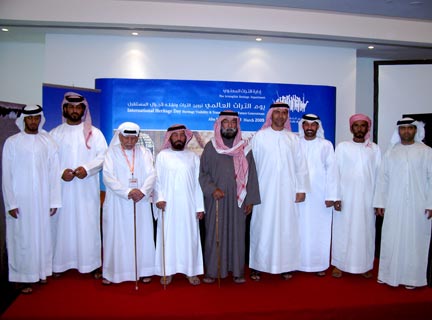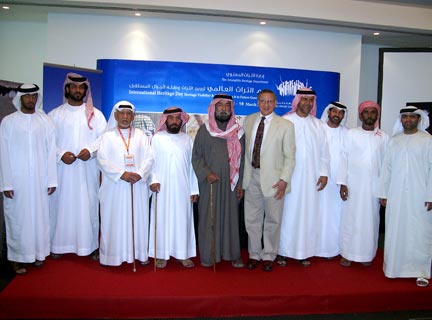
Heritage in a Global Era: The Integration of Modernity and Tradition in the UAE
by el-Sayed el-Aswad, United Arab Emirates University
As part of the United Arab Emirate’s celebration of International Heritage Day, the Abu Dhabi Authority for Culture and Heritage (ADACH) organized a conference held on March 18-19, 2009, entitled “Heritage: From Preservation and Documentation to Promotion and Transmission to Future Generations.†The conference provided a fresh perspective by rethinking the oppositions of modernity/tradition and globalism/localism. A number of leading figures in the field of anthropology, folklore and comparative studies participated in the workshop by presenting papers and engaging in discussions and debates concerning various topics including folk tales, child folklore, falconry, symbolism, worldviews, the preservation of oral literature, and heritage promotion. Intangible heritage, more specifically oral literature, is an important component in understanding not only cultural specificities of societies but also enhancing intercultural relations. The following are some basic questions addressed in the workshop: Does the global culture depict the future as relying primarily on economic, technological, and multi-corporate forces that demand systemization, integration and uniformity? Does the traditional culture conceive the future as contingent essentially on the continuation of heritage, value-systems, religion, rituals, and social-kinship relationships?

Despite the dispute concerning the relationship between global (western) hegemony and local culture, the participants emphasized that the majority of people who adhere to their indigenous heritage tend to accept and implement technology and neoteric means of information and communication transmission that do not represent a threat to their authentic culture. The participants were concerned not only with maintaining folk archives, but also and most importantly, with perpetuating living traditions currently practiced within groups by word of mouth, imitation, and observation over time and space. The workshop discussed the dynamic factors that help disseminate intangible heritage, especially folk tales and other forms of oral folk expressions that help to elevate the culture and narrow the gap between generations. These include such modern devices as computers, CDs, internet based on-line folktales, as well as other forms of electronic broadcast media. In addition, the study of folk heritage has been recommended to be incorporated into formal education curriculums. Special attention was given to folk artists and heritage bearers as indispensable forces in disseminating and eternizing their heritage. Prominent Emirati folk bearers and folk poets, some of whom presented intuitive and invaluable poetic narrations, were recognized and honored.

Dr. El-Aswad in center right, with tie.